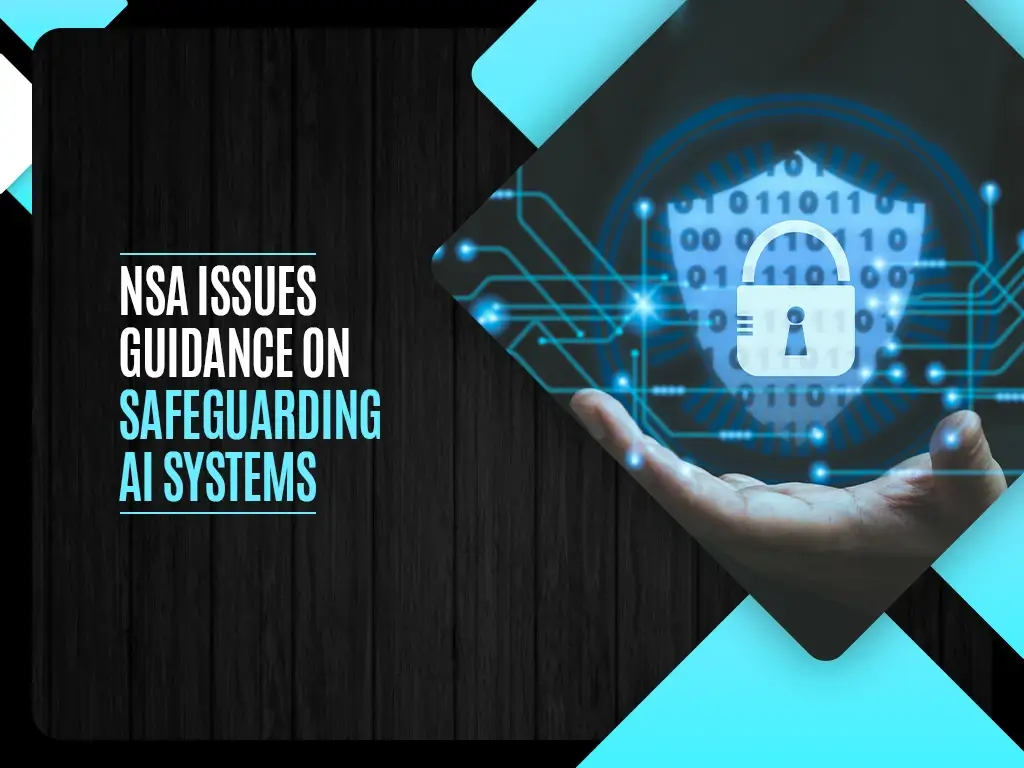NSA Issues Guidance on Safeguarding AI Systems

18th April, New Jersey: The National Security Agency (NSA) is going to take an action affirmative in the security of AI (artificial intelligence) systems deployed as end-use tools for the National Security purpose. It is done either with the purpose of preventing for the present some possible risks and other shortcomings such as indicating without a doubt the credibility of AI systems used in important government operations.
New issues papers of Cybersecurity released
As a result, the artificially-intelligent NSA Security Center (AISC) launched the CS (Cybersecurity Information Sheets) series, spearheading development of this set of cybersecurity documents. These CSI form a holistic model around which organizations acquire, maintain, and run AI-driven tools obtained from single- or multi-source practice.
Collaboration for National Security
The CSIs were not created in isolation. The NSA actively collaborated with cybersecurity agencies from the United Kingdom, Canada, New Zealand, and other international partners. This collaborative effort underscores the global focus on securing AI systems in an increasingly interconnected digital landscape.
Focus on Secure Development & Implementation
The NSA’s CSIs emphasize the importance of secure development and implementation practices throughout the AI system lifecycle. This includes aspects like threat modeling, robust security controls, and ongoing monitoring for potential vulnerabilities.
Mitigating Adversarial Machine Learning Attacks
The guidance specifically addresses the growing threat of adversarial machine learning (AML) attacks. AML attacks exploit weaknesses in machine learning models to manipulate their outputs or compromise their functionality. The CSIs outline strategies to identify and defend against these sophisticated cyberattacks.
Alignment with Cybersecurity Best Practice
Purpose of NSA’s instructions isn’t to substitute CISA and NIST’s current strategic plans and goals on cybersecurity. The approach of the television towards empowerment, therefore, is different from the traditional one. It is rather supportive of the approach of the masses.
The coordinated work is targeted at the development of a single strategy. AI institutes of all government agencies will interchange their approaches to cybersecurity. It gives an unbroken thickness to the line and, in addition, leads to a more uniform defense.
Benefits Beyond National Security
Currently, when governmental security concerns remain unaddressed, they hold intelligence valuable to any organization, including AI systems deployment. AI security is a prevalent concern among enterprises in every industry. These guidelines can improve organizations’ AI cyber security maturity and lessen the possibility of AI security problems.
A Call for Ongoing Collaboration
The National Security Agency acknowledges that considering AI systems as a systematic security process is imperative. One of the agency’s main priorities is searching for opportunities for cooperation with academia, commercial business and international partners in order not to be one step behind, with the latest threats psychological healthcare and develop new security solutions.
NSA Steps Up: Leading the Charge in AI Security
These AI security system releases demonstrate the National Security Agency bold move to set the pace in implementing and developing artificial intelligence algorithm. The NSA will promote good practice and forge linkages within which to be able to secure the vital AI platforms and move towards a more trustworthy and safer future of artificial intelligence.
This news is sourced.

